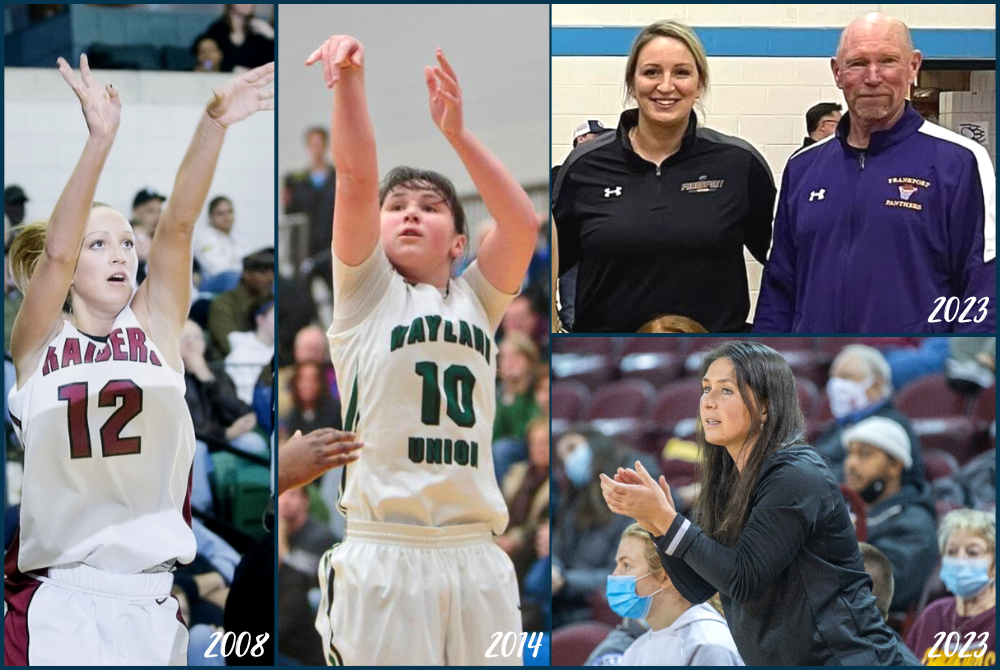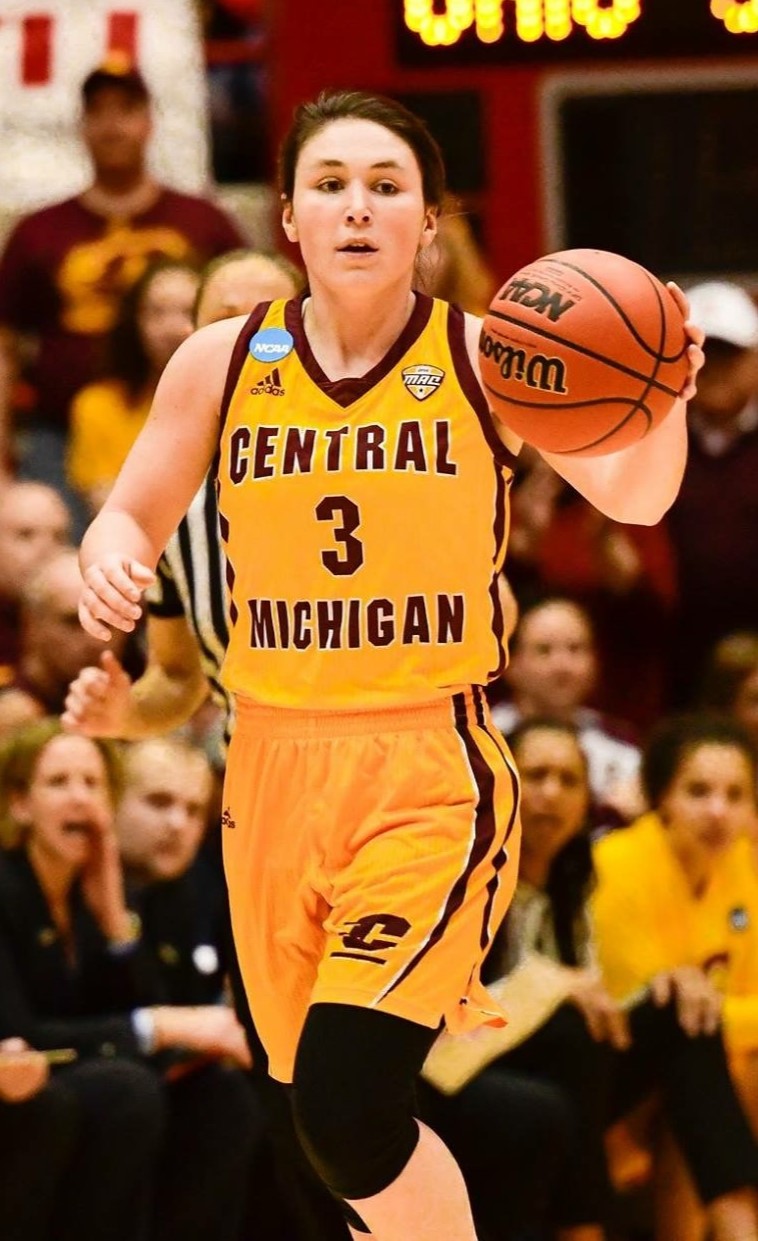
Regulation with Roots
December 3, 2015
By Jack Roberts
MHSAA Executive Director
The following is an excerpt from “History, Rationale and Application of the Essential Regulations of High School Athletics in Michigan.”
Throughout the years, schools of this and every other state have identified problems relating to school transfers.
There is recruitment of athletes and undue influence. There is school shopping by families for athletic reasons. There is jumping by students from one school to another for athletic reasons because they couldn't get along with a coach or saw a greater opportunity to play at another school or to win a championship there. There is the bumping of students off a team or out of a starting lineup by incoming transfers, which often outrages local residents. There is the concentration of talent on one team by athletic-motivated transfers. There is friction between schools as one becomes the traditional choice for students who specialize in a particular sport. There is imbalance in competition as a result. And there is always the concern that the athletic-motivated transfer simply puts athletics above academics, which is inappropriate in educational athletics.
All states have developed rules to address the problems related to school transfers. In some states it is called a transfer rule and in other states a residency rule, because linking school attendance to residence is one of the most effective tools for controlling eligibility of transfers. None of the state high school association rules is identical, but all have the intention of preventing recruiting, school shopping and jumping, student bumping, friction, imbalance and overemphasis, as well as the intention of promoting fairness in athletic competition and the perspective that students must go to school first for an education and only secondarily to participate in interscholastic athletics.
The transfer/residency rule is a legally and historically tested but still imperfect tool to control athletic-motivated transfers and other abuses. It is a net which catches some students it should not, and misses some students that should not be eligible. This is why all state high school associations have procedures to review individual cases and grant exceptions; and why all state high school associations have procedures to investigate allegations and to penalize violations where they are confirmed.
Over the years, state high school associations have considered four options to handle transfers. The first two options are the easiest courses: either (1) let schools decide themselves about transfers, as Michigan once did, but this leads to inconsistent applications and few states now subscribe to such an approach; or (2) make no exceptions at all, rendering all transfer students ineligible for a period of time, but this becomes patently unfair for some students and no state high school association subscribes to that extreme, although it would be easy to administer.
The third option – the ideal approach perhaps – would be to investigate the motivation of every transfer and allow quicker eligibility or subvarsity eligibility to those which are not motivated by athletics, but this is very time consuming if not impossible to administer. No state high school association has sufficient staff and money to consider every detail of every transfer.
This is why a fourth option has been most popular with most state high school associations. This is a middle ground which stipulates a basic rule, some exceptions (15 exceptions in Michigan), and procedures to consider and grant waivers (a primary role of the MHSAA Executive Committee).
It is certain that the MHSAA transfer rule is imperfect. However, whatever few imperfections exist are remedied through a process by which member school administrators may make application to the MHSAA Executive Committee to waive the rule if, in the committee's opinion, the rule fails to serve any purpose for which it is intended or in its application creates an undue hardship on the student. In a typical year, the Executive Committee will receive approximately 250 requests to waive the transfer regulation, approving approximately 60 percent of those requests.
The committee brings to its considerations the following rationale, most recently reviewed and reaffirmed on Aug. 5, 2015:
- The rule tends to insure equality of competition in that each school plays students who have been in that school and established their eligibility in that school.
- The rule tends to prevent students from “jumping” from one school to another.
- The rule prevents the “bumping” of students who have previously gained eligibility in a school system by persons coming from outside the school system.
- The rule tends to prevent interscholastic athletic recruiting.
- The rule tends to prevent or discourage dominance of one sport at one school with a successful program, i.e., the concentration of excellent baseball players at one school to the detriment of surrounding schools through transfers and to the detriment of the natural school population and ability mix.
- The rule tends to create and maintain stability in that age group, i.e., it promotes team stability and team work expectation fulfillment.
- The rule is designed to discourage parents from “school-shopping” for athletic purposes.
- The rule is consistent with educational philosophy of going to school for academics first and athletics second.
- It eliminates family financial status from becoming a factor on eligibility, thus making a uniform rule for all students across the state of Michigan (i.e., tuition and millage considerations).
- It tends to encourage competition between nonpublic and public schools, rather than discourage that competition.
- It tends to reduce friction or threat of students changing schools because of problems they may have created or because of their misconduct, etc.
Following the adoption of a more standardized statewide transfer rule in 1982, there were multiple legal challenges. However, in 1986, the Michigan Court of Appeals determined that a rational basis exists for the transfer regulation and that the rule, with its exceptions, is not overbroad and is neither arbitrary nor capricious, noting that neither a fundamental right nor suspect classification is involved. Berschback v. Grosse Pointe Schools 154 Mich App 102 (1986). That decision is also noteworthy for this statement which has halted or decided subsequent legal challenges: “This Court is not the proper forum for making or reviewing decisions concerning the eligibility of transferring students in interscholastic athletics.”
There were two major changes in the MHSAA transfer regulation during the 1980s. The first, the athletic-motivated transfer rule, led to the busiest period of litigation in the MHSAA’s history. The other major change, arguably of equal impact, was implemented without any controversy.
This second subtle but substantial change occurred in 1987 when language was adopted to limit eligibility after a transfer to the non-public school closest to the student’s residence, as opposed to any non-public school in whose service area the student lived. “Service area” did not have a consistent definition and created unnecessary concern that non-public schools had the advantage of huge, undefined attendance areas, compared to public school districts at that time.
Some high school associations prescribe geographic boundaries or mileage limitations for students transferring to non-public schools. Michigan simply says it’s only the non-public school closest to the student’s residence, where eligibility may be immediate.
PHOTO: The MHSAA Transfer Regulation dates back to the early 1980s when the Association building stood on Trowbridge Road in East Lansing.

Frankfort Hoops Staff Bolstered by Past Stars Giving Back in Banktson, Kreski
By
Tom Spencer
Special for MHSAA.com
July 18, 2023
Veteran Frankfort girls basketball coach Tim Reznich will have a couple of true superstars on his bench this winter.
 They don’t have MHSAA eligibility remaining, but they should really help the Panthers. They’ve used up their college eligibility as well.
They don’t have MHSAA eligibility remaining, but they should really help the Panthers. They’ve used up their college eligibility as well.
They are Lindsey (Pettit) Banktson, a 2008 graduate of Portland High School and all-state forward, and Presley (Hudson) Kreski, a 2014 product of Wayland High School and all-state guard. And, they are now serving as assistant coaches for Frankfort.
Banktson has been on Reznich’s bench 10 years, and Kreski is headed for her first at Frankfort. Kreski has been on women’s basketball coaching staffs at Western Michigan University and Central Michigan University since her playing days.
“I have always felt very fortunate in my situation at Frankfort,” Reznich said. “I have felt like we have always been able to provide our players with the resources and opportunities to excel at basketball, if that is what they wanted to do.
“When Lindsey came those resources increased, and now adding Presley to the mix just brings everything over the top,” he continued. “Our players are already starting to realize it.”
Kreski, who will be teaching health and physical education at Frankfort, and Banktson, now a physician assistant with Crystal Lake Clinic, are excited to work together and with Reznich this winter as he begins his 22nd season at the helm of the Panthers.
“I’ve loved coaching with Rez the past 10 seasons and am just as excited for season number 11,” said Banktson, who went on to play basketball and softball at Ferris State University. “Every year, the night before our first day of practice, is always like Christmas Eve for me.
“I can’t sleep and I can’t wait for my alarm to go off to head to the gym to start our 2-a-days,” she continued. “I am so grateful to coach with Rez and learn from him.”

Kreske too is eager to work with Rez after getting involved with the Panthers in summer ball.
After Wayland, Kreski went on to an illustrious playing career Central Michigan where she won the NCAA 3-point contest in 2019. She also played with the Seattle Storm of the WNBA before playing professionally overseas in Poland.
“I am really excited to be at Frankfort and helping the team out,” Kreski said. “The girls work really hard and want to get better.
“Tim is a great coach, and I am looking forward to working with him and sharing my knowledge of the game as well as learning from him.”
Frankfort is coming off a District championship in 2022 and a District title loss to eventual Division 4 champion Glen Lake in 2023.
Reznich says the Panthers have already noted keys to success just by being around Kreski and Banktson. Reznich, who guided Frankfort to back-to-back Class D championships in 2005 and 2006, admits he may have softened up a bit on his players over the years. Conditioning will be a top priority this year.
“They (Kreski and Banktson) have the first-hand experience of the benefits of pushing yourself hard and not cutting corners,” Reznich said. “Our players will be in the best shape of their lives when those two are finished with them.”
And Banktson is happy to pass on her high school experience to the Panthers. She graduated in 2008 as the Lansing State Journal’s “Female Prep Athlete of the Year” after shining in three sports and leading Portland to the season’s final weekend in two.
“As a player, high school athletics taught me a lot about hard work and dedication,” she said. “High school sports taught me that you have to put in the extra work if you want to be great.
“You have to be in the gym getting extra shots outside of practice, you have to be at the field getting extra reps on the weekends,” she continued. “If you work hard and give everything you’ve got to develop your game, you will be successful.”
Kreski recalls fondly her high school days working hard and having fun with her friends and teammates, along with making deep runs in the tournament.
“High school sports is the truest form of competition,” Kreski said. “It starts with a community who supports everyone from a young age and involves all the friends and family you grew up with.
“High school sports help guide young people into leaders, teaching them how to work hard and be disciplined.”
Kreski led CMU to Sweet 16 her junior year. She is the all-time leading scorer at CMU (2,309) and career assist leader (643). Central won the Mid-American Conference three times during her days with the Chippewas. She married Gage Kreski after that chapter of her career was done.
Banktson met her husband Max Banktson at Ferris State, where he played football. They moved to Frankfort, where Max was born and raised. They have a 3-year-old son named Briggs and a 6-month old daughter named Landyn.
Both Reznich and Banktson express respect and appreciation for their coaching together. They’ve been on the same page with game plans and scouting reports, and they expect it will continued with Kreski aboard.
“Rez and I really work well together,” Banktson said. “He has always respected me as a player and coach and has given me so much autonomy with our teams.
“He is always open to my input when it comes to running certain drills in practice, putting in new offenses, or adding defensive schemes,” she continued. “He trusts me to handle our subbing during games.”
Reznich agrees.
“I have always appreciated Lindsey’s perspective on what the girls are doing on the court,” he said. “It is going to be a lot of fun and exciting to add Presley’s ideas.
“We have always treated the regular season as practice for the tournament, making adjustments and tweaking things,” he continued. “I can’t wait to see the end product this year.”
 Banktson was a three-sport, four-year varsity player at Portland earning a combined 12 varsity letters in basketball, softball and volleyball. She helped the Raiders win league, District and Regional titles. Her teams reached MHSAA Semifinals for softball twice and basketball once.
Banktson was a three-sport, four-year varsity player at Portland earning a combined 12 varsity letters in basketball, softball and volleyball. She helped the Raiders win league, District and Regional titles. Her teams reached MHSAA Semifinals for softball twice and basketball once.
It doesn’t take much to get her back in game mode.
“I can still remember the feeling of adrenaline getting ready in the locker room with my teammates, running out to our warm up music, and battling on the court each game,” she said. “I am thankful for my teammates who, when on the court, were so unselfish. We just wanted to win.”
She hopes to continue to instill greatness in the Panthers.
“I always tell the girls, ‘We were tough’ — not just physically but mentally,” she said. “We had a type of swagger – we played like we knew the bullseyes were on our back, and every game we had to fight to stay at the top.
“We took pride in wearing that Portland Raider jersey,” she continued. “I just want to instill that same mental toughness and swagger into my girls here at Frankfort.”
Having a pair of women who played now coaching and serving as mentors is beneficial on a personal level as well.
“I feel like I can relate to players on a personal level,” Banktson said. “I always try to be a good role model for them and someone they can come to with anything.
“I’m their biggest cheerleader but also not afraid to hold them accountable and help steer them down the right paths of life.”
And Banktson has learned how she might have coached herself.
“I would push myself to continue to work on my right hand, because everyone in the gym knows I’m a lefty,” she said with a smile.
2023 Made In Michigan
July 12: Championship Memories, High School Tennis' Impact Stick with Hackett Pair - Read
July 6: Brother Rice Finals Hero Aiming to Ace Family Life, Financial World - Read
July 5: Lapeer West 4-Time Finals Winner Set to Build Champions at Oklahoma - Read
PHOTOS (Top) Lindsey Banktson plays at Portland in 2008 and stands for a celebratory photo with Frankfort’s District champion last season. Presley Kreski plays for Wayland in 2014 and more recently served on Central Michigan's coaching staff. (Middle) Kreski directs the offense during her time at CMU. (Below) The Banktson family: From left, Landyn, Max, Lindsey and Briggs. (Photos of Banktson courtesy of Lindsey Banktson. CMU photo courtesy of CMU sports information. Wayland photo courtesy of Joel Bissell, MLive.com)

